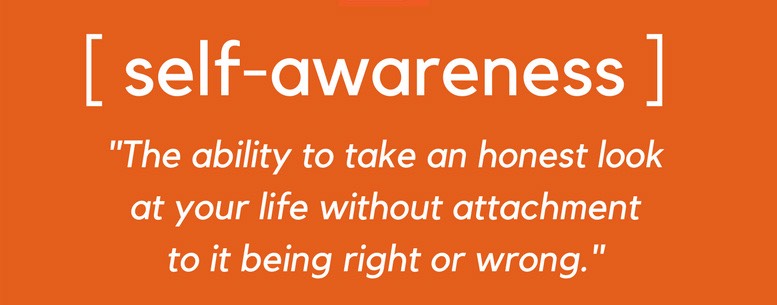
In the past, fear of public reaction to published materials considered unfavorable to those in power had little to no circulation because openly publishing controversial ideas led to reciprocity or death to both reader and author. Prior to the printing press, teaching self-awareness was dangerous and close to impossible since the majority of people were illiterate. Presently, in the United States, it seems like every person either has a blog, podcast or webcast; we are inundated with so much content and distractions; we need 10 life times in order to read it all. As a result, like the majority of our ancestors many of us lack enlightenment or self-awareness.
Today, I’m running for public office despite at times thinking my life would be happier if I had the same capacity to be silent that I have to speak. My name or the office I seek are immaterial, but not my story. I’m moved to action because I fear self-complacency is no longer an option. Despite having doubts, I’m putting in the work instead of complaining. Fear cannot be without hope nor hope without fear. I worry if I have to fight monsters; I have to make sure that in the process not to become a monster myself. I’m concerned if I obtain much attention, fame and notoriety will have great drawbacks, that if I pursue them, I may direct my life so as to please the fancy of public opinion; It may easily come to pass I imagine myself pleasing to all when in reality I become a universal nuisance.
I have made ceaseless efforts not to ridicule or scorn the US President’s actions, but to understand them. If citizens were born free, they would, so long as they remained free, form no conception of good and evil. Ideally, we should embrace listening to new ideas; for it is well known to me that a thing does not therefore cease to be true because it is not accepted by many. Before I can move anyone through debate, I must first move myself by being conscious and in the moment. We start living consciously after surrendering to our individual reality through self reflection and self-awareness. I ask myself, “Is it money? Is it that I’m wrong? Could it be that I’m hating on the President because I have no name recognition? Am I too pessimistic? Or am I simply bias and afraid to put in the necessary work?”
Have I invested time or effort into a business the President’s policies hinders? Most people don't like to see their investment go to waste, even if the task, object, or goal is no longer worth the cost, like coal mining. The President’s policies may dampen the mood of many of my customers but they don’t drastically affect my business.
I recognize I’m not perfect. In the past, when confronted with a decision, I would regularly make judgments based on recent events or information that I could recall. I would substitute one question for another: I wished to estimate... the frequency of an event, but I’d pick the impression that was recent and easiest to recall. Unawareness of this bias can lead to poor decisions. I believe in the wake of the tragic events of 9/11, with images of burning buildings and broken rubble fresh in their minds, politicians quickly voted to implement invasive policies to make us safer at the expense of our civil liberties. Were they truly justified?
Maybe it’s that I’m hating on The President since he’s wealthier than me? I’m not intimidated or impressed by wealthy people without knowing how they put their money to use. It’s easy for me to ignore his wealth. This may seem hard to believe because the majority of people wouldn’t. For this same reason, when selling new cars it's in a car dealer’s best interest to keep list prices high, because ultimately, they'll earn more money, and when you negotiate down, you'll still think you're getting a good deal!
Should ”It won't happen to me” be my new slogan? Individuals are naturally biased to thinking that they are less at risk of something bad happening to them compared to others. Smokers believe they are less likely to develop lung cancer than other smokers, traders believe they are less likely to lose money than their peers, and everyday people believe they are less at risk of being victimized in a crime. This also factors into matters of health, prompting individuals to neglect healthy behaviors like exercise, regular visits to the doctor, and condom use.
Despite my best intentions, I’m not immune from bias. Through confirmation bias most of us favor information that confirms our beliefs. This bias manifests in many ways. When sifting through evidence, individuals tend to value anything that agrees with them -- no matter how inconsequential -- and instantly discount that which doesn't. They also interpret ambiguous information as supporting their beliefs.
Hearing or reading information that backs our beliefs feels good, validates our opinions and so we often seek it out. Many conservatives think liberal-minded individuals treat Rachel Maddow’s words as gospel. At the same time, many Liberals think most conservatives flock to Fox News and absorb almost everything said without a hint of skepticism. One place where it's absolutely vital to be aware of confirmation bias is in criminal investigations. All too often, when investigators have a suspect, they selectively search for, or erroneously interpret, information that "proves" the person's guilt. Though you may not realize it, confirmation bias also pervades your life. Ever searched online for an answer to a controversial question? When the results come in after a query, don't you click first on the result whose title or summary backs your hypothesis? Instead, we should strive to be self aware of the truth since we are and become the stories we tell ourselves. What do you do if all the narratives people are creating around you fall short of your expectations? In those instances, keep applying yourself regardless if you continue to do well. Validated or not, keep grinding and don’t tell yourself a story. The stories we tell ourselves could also be labels that put us at odds not just with reality, but with the real strategy that made us successful in the first place. From that place, we might think that success in the future is just the natural next part of the story comforting you with a false sense of security—when really it’s rooted in work, creativity, persistence, and luck regardless of fear.
By fear I mean being afraid to continually put in the work needed without expectation and discounting delayed rewards. During moments of pessimism I asks myself, "why write content that takes time to read and understand despite knowing most people don’t like to read?" When confronted with low-hanging fruit in the Tree of Life, most people cannot resist plucking it. To put it another way, If offered $50 today or $100 in a year, most people take the money and run, even though it's against their best interests. Our decisions... are guided by the perceived values at the moment of the decision - not by the potential final value. This is why aside from appropriate times of leisure, so many of us are distracted by less productive activities than self reflection, retraining, reading for intellectual growth (enlightenment).
I think we should promote and encourage reason and individualism for all citizens and avoid the low hanging fruits. The President’s actions are equivalent to picking up parcially rotten apples from underneath the tree of life by betting on nostalgia and tradition. He does this despite it not being the best option for his supporters. He can make America great again by teaching members of his base the consequences of the principles of private property rather than creating constant distractions. without the principle of private property there would be no reason for government, which is necessary solely for the purpose of keeping the disinherited (poor citizens) within bounds in their fights mostly originating from ideological disagreements against one another or in their rebellions against those who hold the social wealth and power. Contrary to the popular belief that there are many distributive principles from which economic policy-makers may select, in the absolute sense there are but two. The principle of private property and the principle of need.
The principles of private property and need are diametric opposites, both logically and in their social effects. Ideally, we could balance our lives within these principles as long as we have clearly defined goals with a realistic understanding of outcome. When given a choice, individuals should concentrate most efforts on private property. It’s easy to gauge the outcome of efforts to produce goods or services in exchange for money to realize desired “quality of life.” Desired or “good quality of life” is based on the need principle, subjective and fluid. How many of us are self aware and practicing this?
Thru self awareness of a four-step approach we can use as a starting point to determine our individual access to more opportunities because of wealth. The second is determined by how much of the sciences, engineering, technology, management and skills of labor an individual acquires or possesses. The third is determined by one’s ability to learn, understand and articulate effectively these areas of study. The fourth and final step is to make the application and utilize our aptitude and abilities on things within our power. In other words, I’m offering $100 in 1 year. Please share and/or leave comments below.

